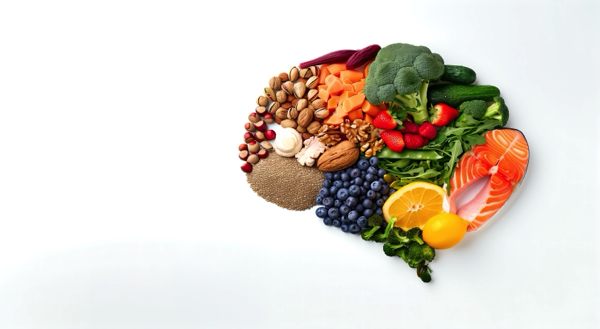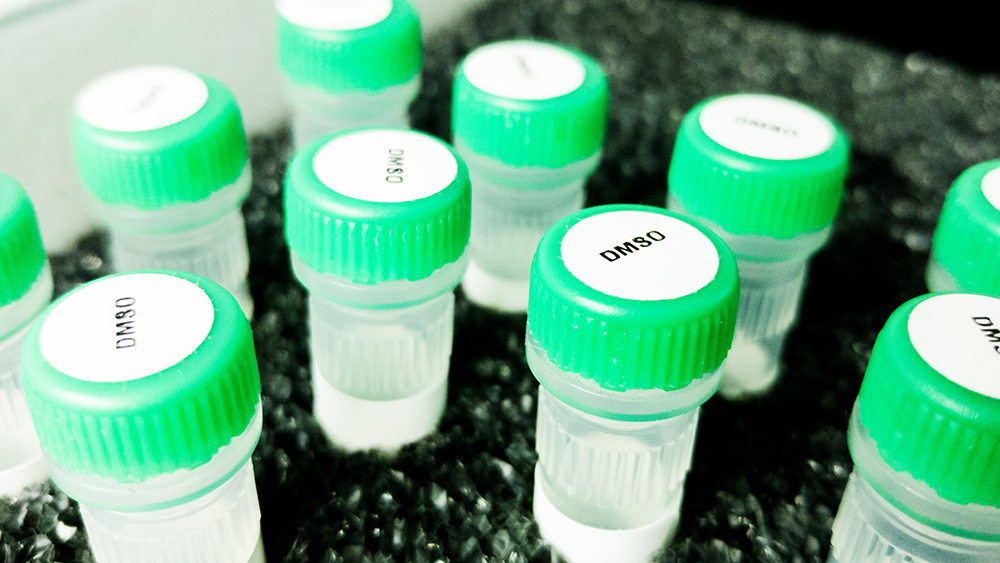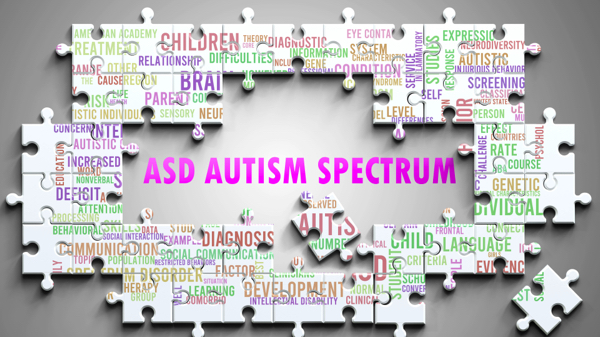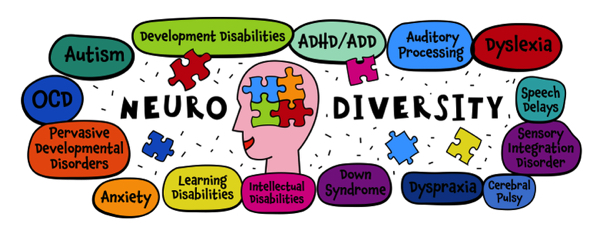Plant-based bioactives can support gut and brain health in people with autism
04/29/2025 / By Olivia Cook

- Many individuals with ASD face dietary challenges, leading to deficiencies in essential nutrients, like omega-3 fatty acids, vitamin D, magnesium and zinc.
- Antioxidants in plant-based foods, such as polyphenols in berries and green tea, can help alleviate symptoms like anxiety and memory deficits, improve cognitive function and reduce inflammation in individuals with ASD.
- Omega-3 fatty acids from plant sources like flaxseeds and walnuts are crucial for brain development, reducing hyperactivity and supporting mood regulation – both of which are important for individuals with ASD.
- Dietary fiber (prebiotics) supports gut health by feeding beneficial bacteria. A healthy gut microbiome is essential for regulating behavior, cognition and mood in individuals with ASD.
- Ensuring adequate intake of nutrients like vitamin D and minerals like magnesium and zinc from plant-based foods can improve behavioral symptoms, cognitive function and mood – supporting overall brain health in individuals with ASD.
A comprehensive review of plant food bioactives published in Food Frontiers outlined the role of phytonutrients in promoting better gut and brain function in individuals with autism spectrum disorder (ASD).
ASD is a neurodevelopment disorder that affects an individual’s ability to behave appropriately, communicate and socialize in various situations. While the exact cause of ASD remains unknown, there is increasing evidence that nutritional factors, particularly those from plant-based sources, can influence the severity of ASD symptoms.
Plant-based bioactives, such as polyphenols, and essential nutrients like omega-3 fatty acids, fiber, vitamins and minerals, have been found to support brain function, reduce inflammation and promote gut health – key factors that may help in managing ASD.
Nutritional needs of individuals with ASD
Individuals with ASD often experience nutritional challenges, including limited food preferences, food aversions and dietary restrictions. These factors can lead to deficiencies in key nutrients that are essential for brain health, such as vitamins, minerals and omega-3 fatty acids. Furthermore, many individuals with ASD suffer from gastrointestinal issues, which can further impair nutrient absorption.
Given these challenges, ensuring adequate intake of essential nutrients through a balanced diet is crucial for supporting brain function, managing behavioral symptoms and promoting overall well-being. Plant-based foods rich in antioxidants, fiber and healthy fats offer a promising solution to these challenges, with the potential to improve both gut health and neurological function.
Polyphenols in plant foods
Polyphenols are a diverse group of compounds found in fruits, vegetables, nuts and seeds. These compounds have been shown to possess potent antioxidant and anti-inflammatory properties that can help in managing ASD symptoms.
For example, anthocyanins, found in blueberries, have been shown to reduce neuroinflammation and improve memory. Quercetin, found in apples and onions, have been found to modulate gut microbiota and reduce oxidative stress, potentially alleviating cognitive deficits and mood disturbances associated with ASD. Catechins, present in green tea, have also been shown to enhance cognitive function, particularly attention and memory.
Omega-3 fatty acids
Omega-3 fatty acids, particularly EPA (eicosapentaenoic acid) and DHA (docosahexaenoic acid), are essential fats that play a crucial role in brain development and function. These fatty acids are involved in the formation of brain cells, the regulation of neurotransmitters and the reduction of inflammation. A deficiency in omega-3 fatty acids have been linked to various neurodevelopmental disorders, including ASD.
Studies have shown that omega-3 supplementation can improve symptoms of ASD, such as hyperactivity, irritability and social deficits. By improving brain function and modulating inflammatory responses, omega-3 fatty acids offer a natural plant-based means of managing ASD symptoms.
Polysaccharides and fiber
Polysaccharides like inulin, found in foods such as asparagus, bananas and onions, are important prebiotics that promote the growth of beneficial gut bacteria. A healthy gut microbiota is essential for optimal brain function, as it helps regulate immune responses, inflammation and neurotransmitter production. (Related: Understanding the gut-brain axis: Can a probiotic help reduce stress levels?.)
Inulin and dietary fiber also support digestive health and improve overall gut function, which is often compromised in individuals with ASD. By promoting gut health, these prebiotics may improve the gut-brain axis (GBA) – a complex bi-directional communication network (involving hormones, the immune system and the nervous system) linking your gut and brain – and contribute to better cognitive and behavioral outcomes.
This bidirectional pathway means that what happens in the gut can directly affect the brain and vice versa. The gut microbiota produces a variety of chemicals, including neurotransmitters like serotonin and dopamine, which are crucial for mood regulation. These chemicals travel to the brain via the vagus nerve, influencing behavior, cognitive functions and emotions. Conversely, anxiety and stress can alter the gut environment, affect microbial balance and lead to digestive issues.
Alkaloids and bioactive peptides
Alkaloids such as berberine have shown potential in supporting brain health by influencing gut microbiota and promoting neuroprotective effects. Berberine has been shown to increase the production of butyrate, a short-chain fatty acid (SCFA) that has anti-inflammatory properties and supports cognitive function.
Bioactive peptides, derived from plant proteins found in grains and legumes, also play a role in supporting brain health. These peptides have antimicrobial properties, support gut homeostasis and contribute to improved cognitive function – making them a valuable addition to the diet of individuals with ASD.
Vitamins and minerals
Vitamins and minerals are essential for normal brain function and development. Many individuals with ASD are deficient in key nutrients, such as vitamin C, vitamin D, magnesium and zinc, which can exacerbate symptoms.
For example, vitamin D plays a crucial role in brain development and a deficiency in this nutrient has been associated with cognitive impairments and social difficulties. Magnesium and zinc, which are involved in neurotransmitter regulation, are also commonly deficient in individuals with ASD and may contribute to behavioral and cognitive deficits. Plant-based foods, such as leafy greens, legumes and seeds, are rich sources of essential nutrients.
Follow MindBodyScience.news for more stories about ASD and nutritional approaches that can help manage autism symptoms.
Watch this video to learn more about plants, the microbiome and mental health.
This video is from the Daily Videos channel on Brighteon.com.
More related stories:
Study unlocks the power of food: How diet can influence Autism Spectrum Disorder (ASD).
Propionic acid (PPA) in processed foods may be associated with Autism Spectrum Disorder.
Sources include:
Submit a correction >>
Tagged Under:
autism, Bioactive peptides, brain function, brain health, dietary fiber, food cures, food is medicine, food science, functional food, gut health, health science, Mind, mind body science, natural medicine, nutrients, nutrition, omega-3s, organics, phytonutrients, plant-based diet, polyphenols, remedies, research
This article may contain statements that reflect the opinion of the author
RECENT NEWS & ARTICLES
BrainFunction.News is a fact-based public education website published by Brain Function News Features, LLC.
All content copyright © 2018 by Brain Function News Features, LLC.
Contact Us with Tips or Corrections
All trademarks, registered trademarks and servicemarks mentioned on this site are the property of their respective owners.




















